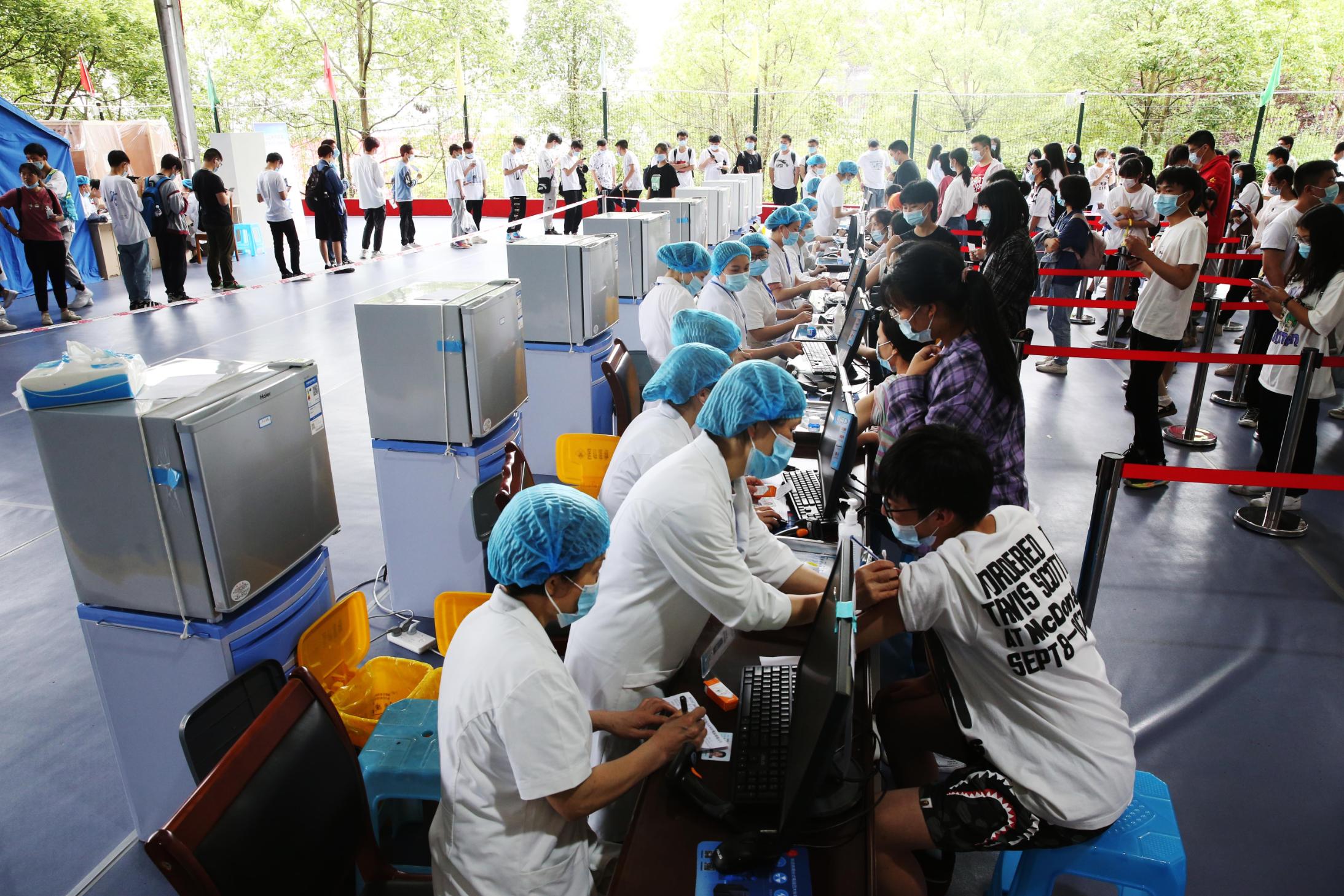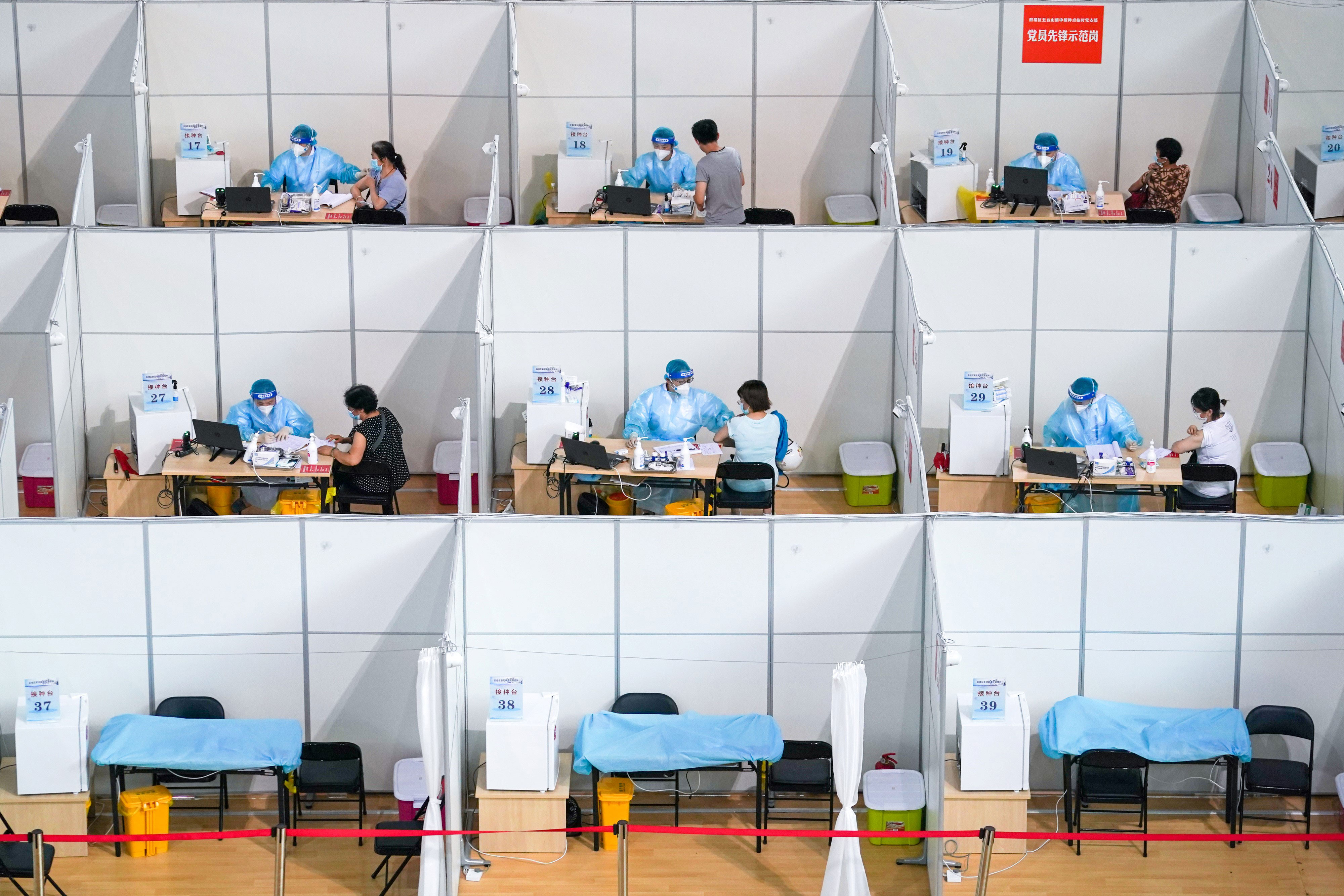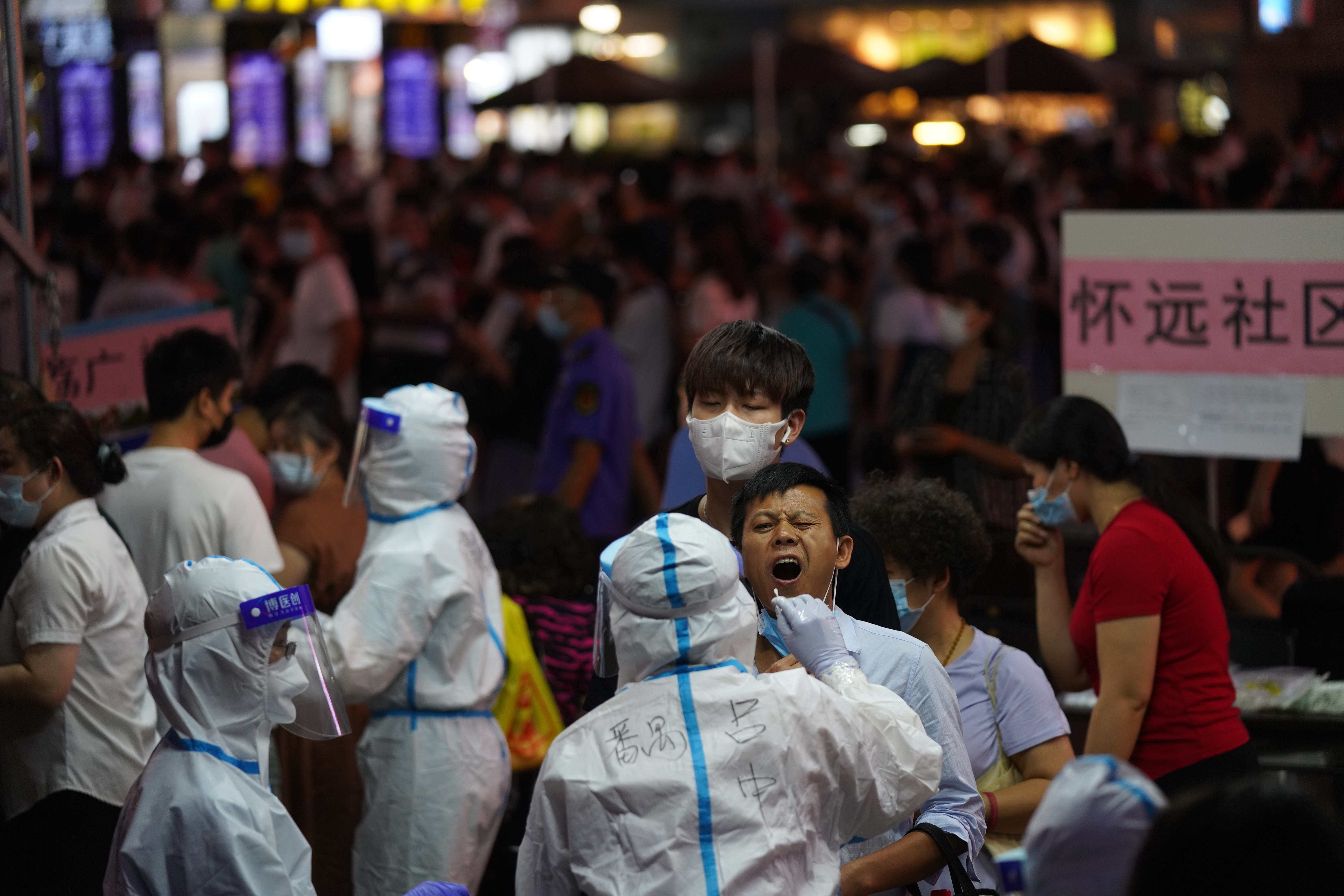China's coronavirus vaccination drive has surpassed 2 billion doses, authorities announced Friday, but heavy-handed tactics intended to boost inoculation rates are triggering backlash in some areas.
As of Thursday, more than 889 million people had been fully vaccinated, with more than two billion shots of domestically-produced COVID-19 vaccine administered in total, an official at the National Health Commission said at a press conference Friday.
That puts China on par with the United Kingdom and ahead of the United States in terms of the percentage of its population that is now fully vaccinated.

The 2 billion milestone came just 10 weeks after the country passed its first billion mark in June, with China now accounting for around 40 per cent of the approximately 5 billion shots given globally.
RELATED: China may have controlled major Delta outbreak in world-first
China's push to boost vaccination rates has accelerated since July, when the highly contagious Delta variant sent infections rising across the country. On Friday, health officials announced that the outbreak had been "effectively brought under control," with case numbers decreasing for 11 straight days since August 16, but the inoculation drive has continued to gather pace.
Speaking at a health conference last Friday, China's top respiratory expert Zhong Nanshan said the country is aiming to fully vaccinate 80 per cent of its 1.4 billion population by the end of the year.
China's latest inoculation campaign has targeted the elderly, minors and residents in the country's vast rural areas — hard to reach groups that had not been covered in earlier vaccination rounds.

In the southern province of Guangdong, a 111-year-old villager rolled up his sleeve last week to receive a coronavirus vaccine shot. In some remote areas, officials arranged home pickups and bussed in residents to vaccination sites.
The NHC has repeatedly stressed that vaccinations should be voluntary. But under pressure to get more shots into arms, local authorities are increasingly turning to coercive measures to ensure compliance.
Across the country, a growing number of localities have banned unvaccinated residents from accessing public services, including hospitals, schools and public transport.
In the southwestern metropolis of Chongqing, district governments announced that residents who refused to be vaccinated without a legitimate reason would impact their social credit — a controversial nationwide system that uses big data to incentivise certain behaviours.
And in Qinghai province, a residential community issued a notice this week, warning residents their pensions, medical insurance and social allowances would be suspended if a member of their immediate family failed to get vaccinated. An official said the notice was meant to "scare" people into getting inoculated, because the community had not met its vaccination target, state-run news reported.
These measures have drawn wide criticism and anger on Chinese social media, with many users accusing local authorities of violating the central government's policy and making the voluntary vaccination drive de facto mandatory.

Yanzhong Huang, a senior fellow for global health at the Council on Foreign Relations, said the discrepancy between central government policy and its local implementation is a typical occurrence in China's top down political system, where provincial officials are placed under tremendous pressure to meet policy targets set by Beijing.
"Failure to fullfil these targets will lead to penalisation, creating this incentive for local government officials to undertake heavy-handed measures to get things done," he said.
In a sign of the mounting pressure, multiple municipal governments have warned local officials they would be "seriously held accountable" if infections broke out among the unvaccinated. Some local authorities have complained that residents have been lured across borders to inoculation sites in neighbouring towns by cash rewards — as officials compete to meet vaccination targets.
Despite the growing vaccination rates, there are no signs that China is preparing to relax its strict zero-COVID approach, or open up its borders anytime soon.
Zhong, the top respiratory expert, said China could establish "effective herd immunity" when the vaccination rate hits 80 per cent.
But Huang with the Council on Foreign Relations said he remained sceptical, given the lower efficacy rates of Chinese vaccines and the surge of Delta variant breakthrough infections across the world.
In Israel, where 78 per cent of those 12 and older have been fully vaccinated (mostly with the Pfizer/BioNTech vaccine), daily cases have surged in recent weeks, and authorities have started to offer booster shots to older citizens.
At the press conference Friday, Zheng Zhongwei, an official at the NHC, said experts at the agency recommend high-risk groups, such as workers at customs, airports and quarantine sites, to be given a booster shot six months after they've been fully vaccinated.
On Monday, state broadcaster CCTV warned the pandemic has not ended and that people shouldn't become careless in epidemic prevention.
from 9News https://ift.tt/2Wv0kxy
via IFTTT


0 Comments